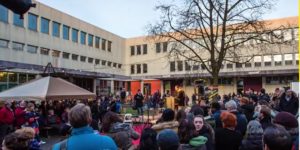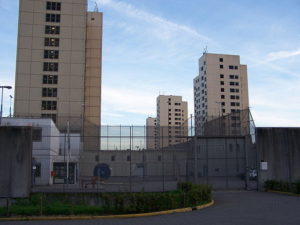In an old Amsterdam prison complex, a unique new business is arising, called The Refugee Company. its mission is to empower refugees. They believe work is the best tool to integration; through work, refugees can blend in with their society and build up a new meaningful life in The Netherlands. They speed up integration by providing opportunities for newcomers upon arrival to utilize their talents again.
The Refugee Company creates spaces where refugees feel at home, can network with non-refugees and where they can show what they are good at. We help build a strong network, develop a portfolio, gain work experience, as to be ready to set up a business or find a paid job. We do this through a tailor-made and holistic approach, checking the work-related personal needs of each individual.
The Refugee Company focuses on craftsmanship, providing work opportunities in the creation and hospitality sector. They see a growing demand for craftsmen and horeca staff in the Netherlands.
On the night of January 20, 2017, a crowd of people gathered in a courtyard in that same prison complex. Under strings of lights, a circus performed for the children, conversation sparked around fireplaces, people shared bowls of warm food, and DJs spun electro, and live Syrian and African music blasted through the loudspeakers.
It looked like any street party, but until last summer, the tall buildings that rose around the courtyard housed Amsterdam’s most famous prison, the Bijlmerbajes. The Bijlmerbajes is a closed prison near the Amsterdam Amstel railway station. It comprises six towers, and was built in 1978.
The city has now repurposed the facility into a vibrant community space for the city’s refugees. Almost as soon as the prison ceased operations (in large part because of their falling crime rates and short sentences), the city contracted with the foundation LOLA to reimagine the facility as a creative hub called Lola Lik, with space for startups, art studios, and offices.But in another section of the Bijlmerbajes complex is the refugee center Wenckebachweg, where up to 1,000 refugees from Syria, Eritrea, Iraq, and Afghanistan have been living while seeking asylum. In developing Lola Lik, the city and LOLA saw an opportunity to further integrate the refugee population with the rest of the population.



